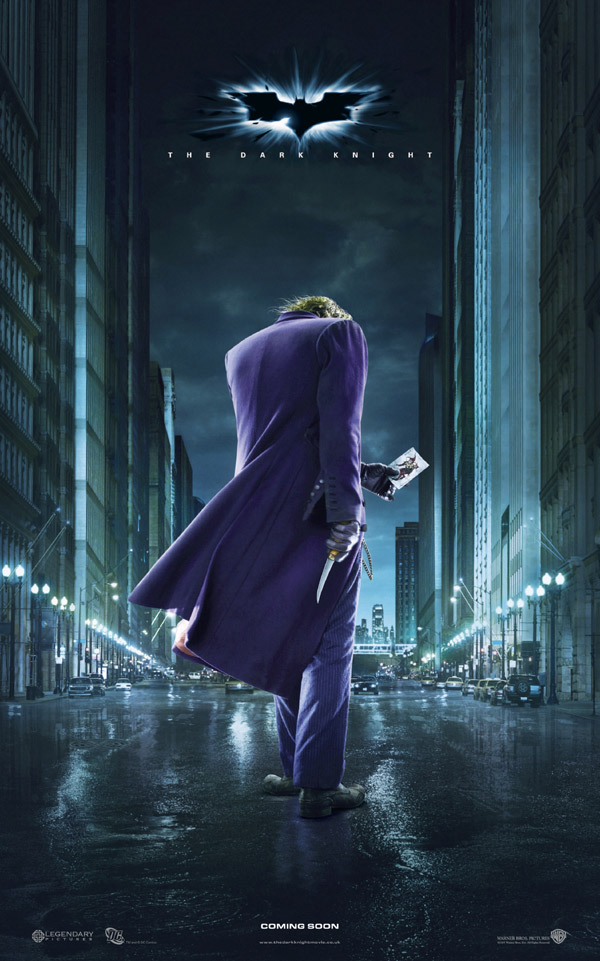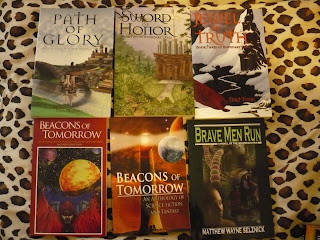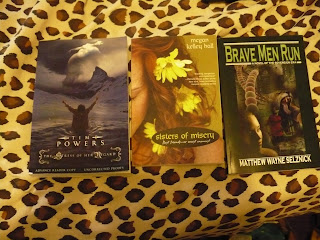
Why is it that some people believe that fantasy is easy?
Fantasy isn't easy folks. In fact, to write good fantasy it takes a lot of thought and, well, talent. Good fantasy is hard. Good fantasy doesn't take all the major cliches, put them in a book, and say "there you go, an original piece of fantasy literature". It's quite the opposite. In fact, to assume that writing--the process--is simpler just because one is writing fantasy is really a plain idiotic thing to say. All writing is difficult. For many, it's a job, and very few superbly crappy novels--novels which clearly display the writer's lack of talent or interest in what he or she is doing--are actually published these days (at least, not by real publishing houses). Crappy novels, of course, do exist, but generally crappy novels are crappy because they are poorly written.
Fantasy itself is also quite difficult. Remember, fantasy writers are working in created worlds, worlds that do not exist and never will. Such worlds are populated by humans and other creatures, some humanoid and some not, all of which have their own separate cultures (or a collective culture). The result is that an author can't just sit down and regurgitate a decent, well rounded fantasy world in one go. Readers will catch on; they'll know that the author didn't put their all into it. Writers who write good fantasy--the type that has something to say, that addresses issues that don't rely on common cliches, character ripoffs from other fantasy works, and entirely pointless bits of "fantasy nonsense"--put a hell of a lot of work into their writing. They have a lot to consider that writers in other genres do not: everything from fantasy races to invented cultures. Some writers are dealing with weird forms of fantasy, the kind we're not really used to (perhaps Jeff Vandermeer is a good example here).
You can't just say "well I write fantasy because it's easy". What exactly is easy about fantasy? You can't just make it all up and think it will work. Fantasy follows rules. Granted, those rules may defy the laws of physics as we know them, but they do follow a set of rules within the created world and good fantasy does not violate these rules. Magic, for example, is only interesting if it has limitations, and what qualifies as a limitation determines the value of the magic to the story. If there are no consequences for the use of magic, what's the point?
Quite frankly, I find it rather annoying when people say that fantasy is easy. It's a display of ignorance in the arrogant vein and indicative of the narrow-minded mentality that dominates the anti-genre crowd (yes, I am aware that some people simply don't understand that fantasy isn't easy and aren't necessarily "haters"). There are plenty of fantasy novelists who do, in fact, work their butts off to write a good fantasy book. Perhaps some of the people who say that fantasy is easy simply think so because it comes more naturally to them, while other forms of writing are more difficult. But then, that would mean to someone who writes fiction, fiction is easy and essay writing is suddenly not, right? And is that a fair assessment on essay writing or fiction writing? Just because it seems easier doesn't mean that it actually is. Or, perhaps what people actually mean is that fantasy is fun? Generally when we are having fun doing something, that something is more entertaining and we're more interested in it. Again, this doesn't make it "easy". It makes it fun, and that's all. You're exerting energy at a different level, but it's attached to the happy side of your brain and not the side that is screaming at you that it's bored (generally speaking, all writing should be fun, even in difficult times).
So, let's think about this folks. Any time you want to say that fantasy is easy, think about it first. Consider why you think it's easy and assess those thoughts logically. Is something necessarily "easy" because it's fun, or because it seems easy to you? And then, to those that treat fantasy negatively in this respect, perhaps you should read the genre more before coming to the conclusion that it is easy. Or, maybe you should write your own fantasy book, sell it, and make millions on it and tell us just how easy that was. I can almost guarantee you that it will prove to be very difficult indeed.
 Most of us know about the show "Extreme Makeover". If you don't, here's the short version:
Most of us know about the show "Extreme Makeover". If you don't, here's the short version:

























